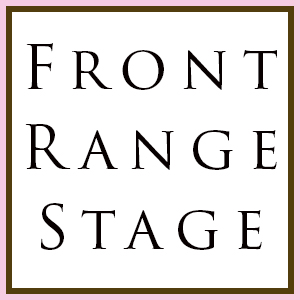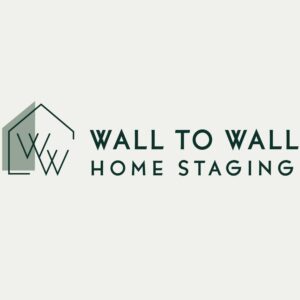Property Staging

A list of property stagers and what our experience has been
List of home stagers
Understanding property stagers in Colorado: what home sellers need to Know
- Structural Components: Foundation, walls, roof, and framing.
- Exterior: Siding, windows, doors, and drainage.
- Interior: Floors, ceilings, walls, and stairs.
- Plumbing: Visible pipes, fixtures, and water heaters.
- Electrical: Wiring, outlets, and panels.
- HVAC: Heating, ventilation, and air conditioning systems.
- Appliances: Testing functionality of built-in appliances.
- General Home Inspection:
- Small Homes (<1,500 sq ft): $300–$450
- Medium Homes (1,500–2,500 sq ft): $400–$600
- Large Homes (>2,500 sq ft): $600–$800+
- Older homes may incur additional fees due to increased complexity.
- Radon Testing: $150–$300
- Conducted using continuous radon monitors for 48 hours or longer-term tests for 90 days+ to measure radon gas levels.
- Sewer Scope Inspection: $125–$500
- Involves using a camera to inspect the sewer line for blockages, cracks, or root intrusion.
- Mold Testing: $200–$300
- Includes air or surface sampling to detect mold, often paired with thermal imaging to identify moisture issues.
These prices are based on industry averages from reputable Colorado inspection companies.
- Specialized Equipment: Plumbers typically use advanced, self-leveling HD cameras designed specifically for sewer lines, providing clearer visuals than the general-purpose cameras some inspectors use.
- Trade Expertise: Plumbers are trained to diagnose and repair sewer issues, so they can better interpret findings and recommend precise solutions.
- Accuracy: A bad sewer scope evaluation from a home inspector may occur due to their lack of specialization, potentially leading to misdiagnosed issues that could affect negotiations or repairs.
Radon is a colorless, odorless radioactive gas that’s a leading cause of lung cancer among non-smokers. In Colorado, radon is extremely prevalent, with approximately 75% of homes exceeding the EPA’s recommended action level of 4.0 picocuries per liter (pCi/L). The entire state is classified as a Zone 1 area by the EPA, indicating the highest risk for elevated radon levels, with an average of 6.3 pCi/L.
- Fixing homes with radon levels at or above 4 pCi/L.
- Considering mitigation for levels between 2–4 pCi/L, as no level is considered completely safe.
Testing in the lowest livable area of the home (e.g., a finished basement or first floor) using a professional-grade continuous radon monitor for 48 hours or a long-term test for 90 days+.
Radon testing is critical for Colorado home buyers, especially in high-risk areas like Denver, Boulder, and Colorado Springs. If elevated levels are found, mitigation systems (costing $1,000–$2,000) can effectively reduce radon by venting it outside.
- Peeling paint (especially in pre-1978 homes due to lead concerns).
- Leaking roofs.
- Lack of functional heating systems.
These must be addressed before closing, but other defects are negotiable between the buyer and seller.
A home inspection report is lengthy and detailed, often spanning 20–50 pages, as inspectors aim to identify as many visible defects as possible. Don’t be alarmed by the number of issues listed—every home, including new builds, will have defects noted, such as minor cosmetic issues or maintenance recommendations. The report is not an x-ray of the house; it’s based solely on observation-based evaluation, meaning hidden issues (e.g., behind walls or under flooring) won’t be detected unless specialized tools like thermal imaging are used.
- Summary of Major Issues: Highlights critical concerns like structural or safety hazards.
- Detailed Findings: Covers every system inspected, with photos and notes.
- Recommendations: Suggestions for repairs or further evaluation by specialists (e.g., plumbers for sewer issues).
- Uncover Hidden Issues: Identify problems like high radon levels or sewer line damage that could cost thousands to fix.
- Negotiate Repairs: Use findings to request seller concessions or price adjustments.
- Plan for Future Costs: Understand maintenance needs to budget accordingly.
- Ensure Safety: Protect your family from hazards like radon or mold.
In competitive markets like Denver, Boulder, or Colorado Springs, waiving inspections to make an offer more appealing can be risky. Even new construction homes can have defects, such as misaligned sewer pipes or improper insulation, making inspections invaluable.
- Certifications: Look for ASHI or InterNACHI credentials.
- Experience: Choose inspectors familiar with Colorado’s unique issues, like radon prevalence or older homes’ clay sewer pipes.
- Comprehensive Services: Opt for companies offering add-ons like radon testing, sewer scopes, and mold testing for a complete picture of the home’s condition.
- Clear Communication: Ensure the inspector provides a detailed, readable report and is available for follow-up questions.






